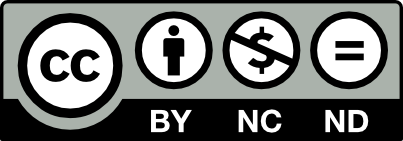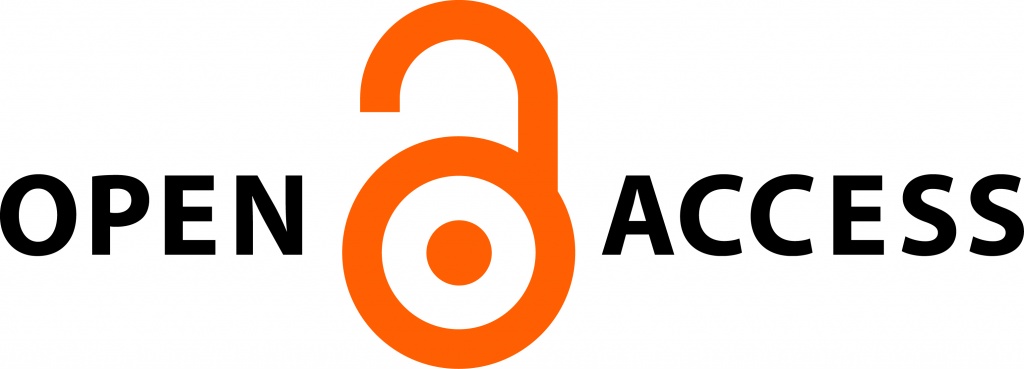1. Aims and scope
The journal publishes research papers on the development of the Baltic region. The editorial board aims to present a wider view of the processes taking place in the region. The journal is a venue for high-quality research focusing on the geographical, economic, political, sociological, and socio-cultural aspects of the region. The editorial board also encourages submissions on the theory and methodology of regional studies.
All submitted papers are peer-reviewed and checked for plagiarism.
The journal publishes original research papers, which have not been published earlier. By submitting a paper to the journal, authors take upon themselves the obligation not to publish it in full or in part in any other media without the consent of the editorial board.
Manuscripts should be formatted in accordance with the requirements given in the Guidelines for Authors and submitted only through the online submission system.
2. Sections
Economy
Politics
Society
Geopolitics
Geoeconomics
Tourism
Migration studies
Coastal studies
International relationships
Development of border regions
EU countries in the Baltic region
Digitalization
3. Publication Frequency
4 issues a year (April, June, September, December)
4. Open Access Policy
The Baltic Region is a platinum open access journal. All its articles will be immediately open for all to read, download, copy and distribute for an unlimited period.
The journal content has been licenced under CC BY license up until March 2025.
From March 2025 the journal content is licensed under Creative Commons Attribution - Noncommercial - No Derivative Works CC-BY-NC-ND (CC BY-NC-ND 4.0)


5. Copyright
Authors retain intellectual property rights without any restrictions. When republishing materials, the author is obliged to provide a reference to the materials previously published in the Baltic Region.
6. Plagiarism Policy
The editorial board of the Baltic Region journal implements the principle of zero tolerance for plagiarism. All submitted articles are checked for plagiarism.
7. Publication fee
Publication in the journal is free.
There is no fee for the preparation of materials for publication.
8. Founder and publisher
Founders:
- Immanuel Kant Baltic Federal University.
- Saint Petersburg State University.
Publisher: Immanuel Kant Baltic Federal University.
9. Self-Archiving by Authors
The platinum open access policy adopted by the Baltic Region allows and encourages authors to post their accepted articles on personal websites orrepositories, such as ResearchGate and/or affiliated institution’s storage systems. This can be done both before and after publication. Authors should include a citation linking to the published version of the article in this journal within the bibliographic description
The journal adheres to the free self-archiving policy.
What and when authors can self-archive
|
|
Personal website |
Repository of the affiliated institution |
Thematic repository or social media (ResearchGate, Academia.edu, SSRN, Repec and others) |
|
Preprint, Review version |
Anytime |
Anytime |
Anytime |
|
Accepted version of the article |
After receiving official notification from the editorial office about the article's acceptance for publication |
After receiving official notification from the editorial office about the article's acceptance for publication |
After receiving official notification from the editorial office about the article's acceptance for publication |
|
Final version |
After the article is published in an issue on the journal’s website at https://balticregion.kantiana.ru/ |
After the article is published in an issue on the journal’s website at https://balticregion.kantiana.ru/ |
After the article is published in an issue on the journal’s website at https://balticregion.kantiana.ru/ |
Preprints
The editorial office of the Baltic Region journal encourages authors to post manuscript preprints on preprint servers. A preprint, as defined by the Committee on Publication Ethics (COPE), is a research manuscript uploaded by authors to an open platform, typically before or during the journal’s peer review process. Posting a preprint is not considered duplicate publication and does not influence the editor’s decision on publishing the article in the Baltic Region.
Authors should notify the editorial office of the Baltic Region about the posted preprint at the time of submitting their manuscript for review and provide a link to the preprint, including the DOI identifier and the preprint’s distribution terms. Authors are responsible for updating the preprint to include a link to the published article. This link must include the DOI and the URL of the article’s version published on the journal’s website at https://balticregion.kantiana.ru/.
The original text of the preprint should not be altered based on the reviewers’ and editor’s comments. The text of the preprint should not be replaced with the text of the published article. The text of the preprint need not be removed.
Manuscripts accepted for publication
The editorial office of the Baltic Region journal allows authors to self-archive manuscripts that have undergone peer review and have been accepted for publication. Authors may use the following options for posting this version of the manuscript:
· a personal website or blog,
· a repository of the affiliated institution,
· a themed repository;
· direct contact with colleagues or students, offering this version of the article for personal use.
In the manuscript, authors should clarify its status and provide information about the forthcoming publication.
Example: ‘The article “Title of the Article” has undergone peer review, has been accepted for publication, and will be published in issue No. ___ of the year ____ in the Baltic Region journal.’
After the final version of the manuscript is published, the author is responsible for updating the publication with a link to the published article. The text should not be modified based on reviewer and editor comments. The text of the posted version of the manuscript should not be replaced, while the text of the posted version of the manuscript need not be removed.
Final versions of manuscripts
The editorial office of the Baltic Region allows authors to self-archive manuscripts that have undergone peer review, have been accepted for publication and have completed editorial processing, i.e. have been proofread and typeset. Authors may use the following options for posting this version of the manuscript:
• a personal website or blog,
• a repository of the affiliated institution,
• a themed repository;
• direct contact with colleagues or students, offering this version of the article for personal use.
After the final version of the manuscript is published, the author is responsible for updating the publication with a link to the published article. The text should not be modified based on the reviewers’ and editor’s comments. The text of the posted version of the manuscript should not be replaced, while the text of the posted version of the manuscript need not be removed.
10. Archiving
The journal employs the PKP Preservation Network (PKP PN) to electronically archive all published articles. PKP PN is part of the LOCKSS (Lots of Copies Keep Stuff Safe) data backup programme, which ensures decentralised and distributed storage, uninterrupted access and recovery of the original content if it is lost by the publisher.
Electronic copies of the published articles are also stored in the Scientific Electronic Library at eLibrary.ru.
11. Themed issue policy
The Baltic Region journal publishes themed issues on the most relevant research topics aligning with the journal’s focus. Themed issues are compiled with the involvement of guest editors specialising in the field. All manuscripts submitted for consideration in such an issue undergo the standard peer-review process and comply with both the journal’s editorial policy and ethics guidelines.
The editor-in-chief and the editorial board of the journal oversee the appointment of guest editors and the selection of manuscripts for themed issues, to ensure the exceptional quality of the published materials.
All submitted works, including those intended for publication in themed issues, undergo double-blind peer review involving at least two authoritative external experts.
12. Data sharing policy
The Baltic Region supports and encourages authors to provide the data supporting the findings presented in the article, either by archiving it in an appropriate publicly accessible repository or by sharing it through the corresponding author upon reasonable request. Authors are required to prepare a data availability statement to be published in their article and must include a reference to the provided raw data in the list of references.
We recommend that authors consult the indexing services of Figshare and Mendeley Data repositories or check whether their institution offers storage for affiliated researchers.
13. Disclosure and Conflict of Interest
Unpublished data obtained from submitted manuscripts cannot be used in any other research without the author’s written consent. Any information or ideas obtained during the review is confidential and must not be used for personal gain.
The journal invites peer-reviewers to exclude themselves in the case of a conflict of interest due to competitive, collaborative, and other interactions and relationships with any of the authors, companies, or other organisations associated with the submitted work.
14. CrossMark policy
CrossMark is a multi-publisher initiative from Crossref, provides a standard way for readers to locate the authoritative version of an article or other published content. By applying the CrossMark logo, journal "Baltic Region" is committing to maintaining the content it publishes and to alerting readers to changes if and when they occur.
Clicking the CrossMark logo on a document will tell you its current status and may also give you additional publication-record information about the document.
15. Generative AI usage policy
Generative artificial intelligence and AI-based technologies may be used in academic writing to enhance the language of the manuscript, including grammar, syntax and spelling. In this case, no statements regarding the use of AI are required from the author(s).
In all other cases, authors must declare the use of generative AI technologies in the “Additional Information” section of the article. This statement may read: “When preparing this article, we used [name of tool/service] for [reason]. After using this tool/service, we reviewed and edited the content as necessary and take full responsibility for the content of the published article”. This indicates that the use of AI technologies should be accompanied by human oversight and control. Authors should carefully check and edit the results obtained, as AI-generated text can often be erroneous, incomplete or biased. Authors bear full responsibility for the content of their work.
If the manuscript includes images created or altered using generative AI or AI-supported tools, authors must disclose this in the “Additional Information” section of the article, providing a detailed description of when and how these tools were used. Additionally, authors must confirm that they have obtained all necessary rights to use such materials.
Authorship of the manuscript may be assigned solely to a human being. AI and AI-supported technologies cannot be listed as author(s) or co-author(s) due to their inability to meet authorship criteria: they cannot take responsibility for the work, consent to publication, manage copyright or address issues related to conflicts of interest.
16. Privacy Statement
Specified when registering the names, phone number and addresses will be used solely for technical purposes of a contact with the Author or reviewers (editors) when preparing the article for publication. Private data will not be shared with other individuals and organizations.